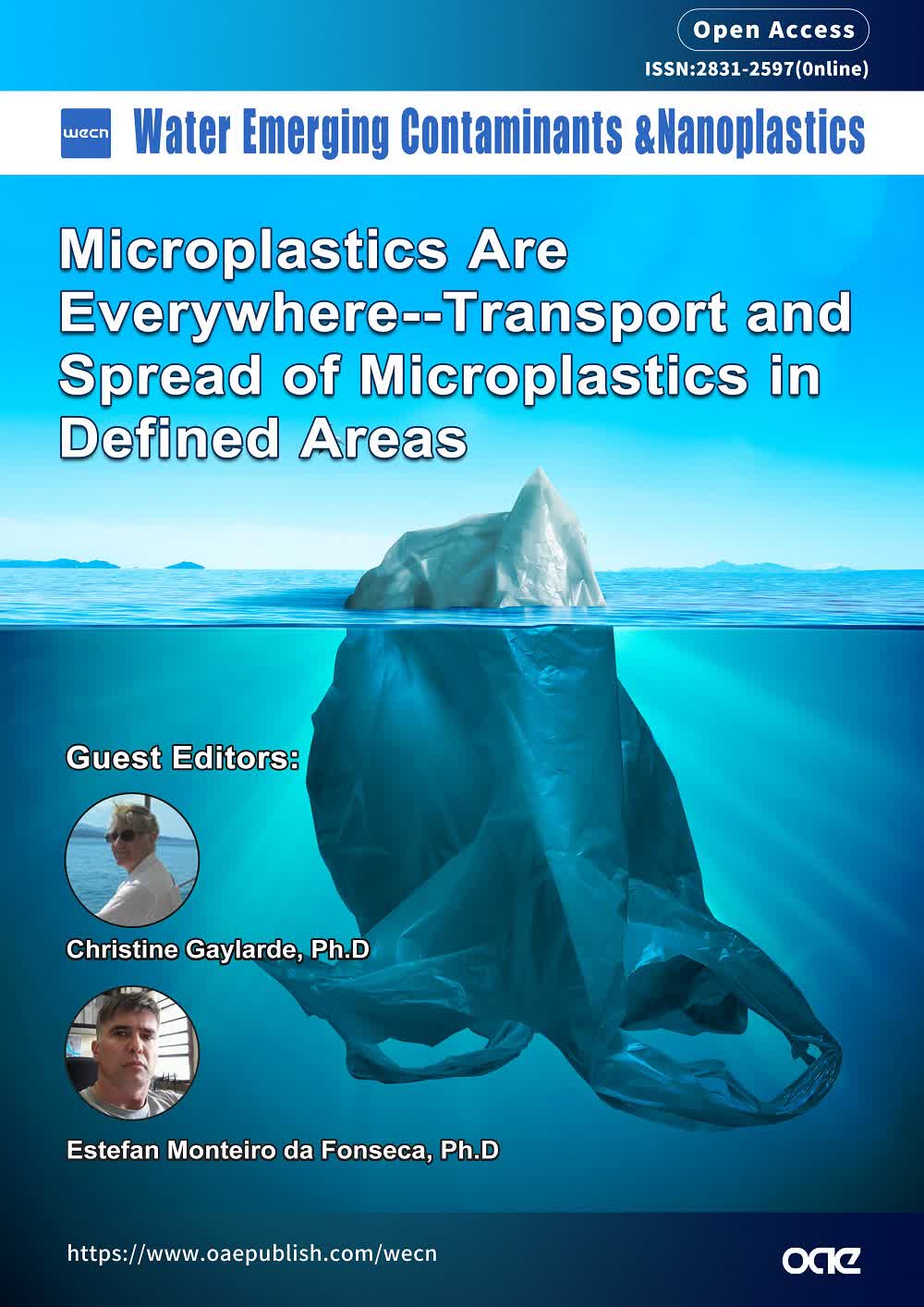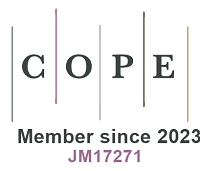
Topic: Microplastics Are Everywhere - Transport and Spread of Microplastics in Defined Areas
A Special Topic of Water Emerging Contaminants & Nanoplastics
ISSN 2831-2597 (Online)
Submission deadline: 15 Mar 2024
Special Topic Introduction
Topics to be covered in this Special Issue include but are not limited to the following:
1. Understanding the cycle process and ecological effects of microplastics entering aqueous ecosystems to determine the destination of these microplastics and improve the quality of the environment;
2. Analyzing particle size and distribution characteristics of surface and sediment microplastics in different areas, such as rivers, offshores, gulfs, straits, and islands, and providing basic data and technical support for relevant departments to formulate targeted management measures and improve the aqueous ecological environment;
3. The distribution of microplastics in remote and hard-to-reach regions, such as the deep ocean, Arctic and Antarctic seas, analyzing the factors affecting the dispersion of microplastics;
4. The enrichment, transport and effects of microplastics in aquatic organisms, and the ways in which this may affect biodiversity;
5. Explore the distribution and behavior of microplastics in specific and unique aquatic environments, such as hot springs, underground caves, or high-altitude lakes. Understand the factors influencing their presence and potential ecological consequences in these less-explored settings;
6. Develop and assess advanced techniques for detecting and monitoring microplastics in surface waters and sediments, especially for the application of innovative technologies like remote sensing, machine learning, or spectroscopic methods to enhance accuracy and efficiency;
7. Exploring the role of natural factors (e.g., currents, winds) in the dispersion of microplastics in remote regions, such as deep-sea environments and polar seas;
8. Assessing the effectiveness of existing policies and regulations in managing and mitigating microplastic pollution in specific geographic areas;
9. Exploring innovative and sustainable solutions for reducing the input of microplastics into aquatic environments.
Keywords
Submission Deadline
Submission Information
Ten articles in the Special Issue are exempt from article processing charges.
For Author Instructions, please refer to https://www.oaepublish.com/eceh/author_instructions
For Online Submission, please login at https://www.oaecenter.com/login?JournalId=eceh&IssueId=eceh2403151380
Contacts: Haidi Ding, Managing Editor, [email protected]
Na Young, Assistant Editor, [email protected]








